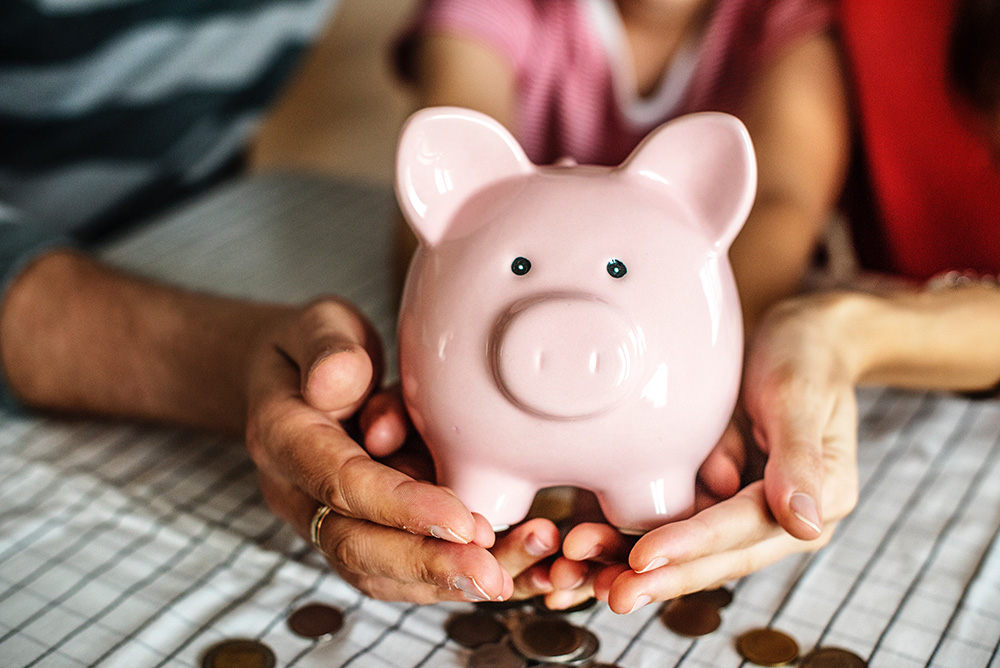One of the important the things to arrange If you going to emigrate is a bank account. When you live in the Netherlands, you need a (Dutch) bank account to manage your day-to-day finances such as paying for your groceries and rent. In this guide, PartnerPete answers all bank- and payment related questions to ease your move.
The Dutch Monetary system
In the Netherlands, the monetary unit is the euro (€). The euro is a currency shared by 19 of the European Union’s Member States which makes currency transfers within the EU a lot easier.
Unlike in some other countries, such as the UK or US, paying by credit card in shops, restaurants, and supermarkets, is not common in the Netherlands. In a lot of cases paying by credit card isn’t even available. The preferred method of payment is paying with a debit card (pinnen). Amounts under €25,- can be paid wireless without a PIN code, if your card supports this. Also, the Dutch are keen on online banking or automatic debit.
Can I use my existing bank account in the Netherlands?
If you have an IBAN, you can use your debit card for payments in the Netherlands. Unfortunately, not all type debit cards are accepted when paying, most stores only accept Maestro. ATM’s in the Netherlands accept a wide range of cards, so you should not have problems obtaining cash from a foreign account. The acceptance of cash in restaurants and stores is declining, making it advisable to open a Dutch bank account.
What is IBAN?
IBAN stands for International Bank Account Number, it is a nine-digit account number. IBAN makes it easier and faster to process cross-border payments within SEPA countries. When you open a Dutch bank account, you will receive an IBAN.
What is SEPA?
SEPA stands for Single Euro Payments Area and is an agreement between all participating countries of the European Union. With the introduction of SEPA, the EU created one European payment market with uniform payment products and guidelines, making payment within these countries a lot easier.
The participating countries are: Belgium, Bulgaria, Cyprus, Denmark, Germany, Estonia, Finland, France (including Guadeloupe, Martinique, French Guiana and Reunion), Greece, Hungary, Ireland, Iceland, Italy, Croatia, Latvia, Liechtenstein, Lithuania, Luxembourg, Malta, Monaco, the Netherlands, Norway, Austria, Poland, Portugal (including Azores and Madeira), Romania, Slovenia, Slovakia, Spain (including Canary Islands, Ceuta and Melilla), Czech Republic, United Kingdom (including Gibraltar and Northern Ireland ), Sweden and Switzerland.
How do I open a Dutch bank account?
If you want to open a bank account in the Netherlands, there are a couple of steps you need to undertake. First, determine which bank suits your needs best. For expats, PartnerPete recommends ABN AMRO because of their extensive international expertise. Once you decided which bank has your preference, you need to make an appointment online or just walk into the nearest branch with all required information. Some banks offer the option to consult you at home or via video calling.
What documents do I need to open a Dutch bank account?
If you want to open a Dutch bank account you will need the following documents:
• A valid ID such as a passport or identity card
• Proof of address (i.e., a rental agreement)
• Proof of income (i.e., bank statement or employment contract)
• Residency permit for non-EU resident)
• Your BSN number (citizen service number which you will get when you register with the municipality you live in).
How do I get a Dutch BSN?
You can and must use the citizen service number increasingly often, in dealings with your municipality, the hospital, schools, your employer or benefits agencies, for example. If you come to the Netherlands for work or study purposes, you must register with the municipality you live in. After registering you will automatically receive a citizen service number.
Online Banking Methods
The Dutch tend to organize their financial affairs online via internet banking, the amount of bank branches is decreasing each year. With online banking, you can schedule payments, check your balance or see debited- and credited payments. Almost all banks in the Netherlands have a mobile banking app which you can use on the road. Internet banking is secure and allows you to do nearly all transactions you would usually do in a branch.
What is iDEAL?
iDEAL is an online payment method that allows customers to buy on the internet using direct online transfers from their bank account. It is the most common online payment method in the Netherlands. In addition to e-commerce, iDEAL is also used to make donations to charities, pay taxes or energy bills.
For incidental payments between individuals, apps such as Tikkie are gaining in popularity. These apps enable individuals to send each other a payment request via WhatsApp which users can pay directly via the mobile app of their bank.
Need help opening a Dutch bank account?
PartnerPete is your partner in getting connected to all services in the Netherlands such as a bank account. We teamed up with ABN AMRO to make sure your specific needs as an expat are met.
Want to know more about our services or do you want to open an account? Give us a call on +31 20 7372124 or leave your details and we will call you back as soon as possible.

